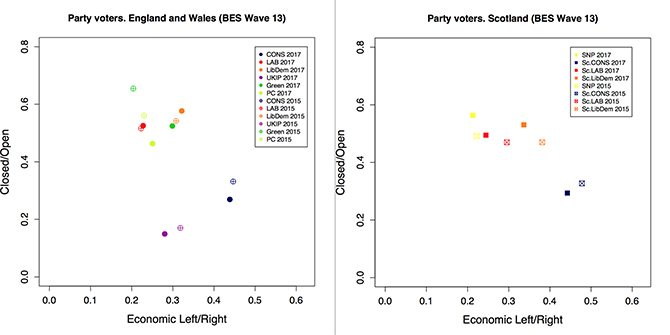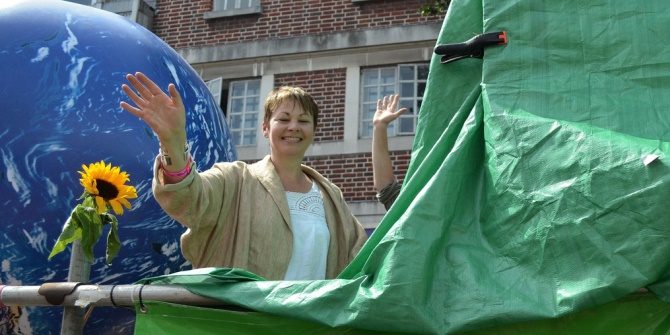 In this post James Mills reviews government drug policy through history. He finds it odd that MPs today admit they are unable to have an objective debate about drug policy whilst much of this is due to the fact that in the past so many of them have obscured the issues with their personal anxieties and political agendas.
In this post James Mills reviews government drug policy through history. He finds it odd that MPs today admit they are unable to have an objective debate about drug policy whilst much of this is due to the fact that in the past so many of them have obscured the issues with their personal anxieties and political agendas.
The recent Home Affairs committee report on drugs policy with the title ‘Drugs: Breaking the Cycle‘ has already provoked strong reactions, with the Prime Minister moving quickly to reject a key recommendation that a Royal Commission on Drugs Policy be established. Yet tucked away in the report was a statement that seems less eye-catching at first, but which nevertheless seems provocative on further reflection. The committee noted that ‘in a poll carried out between May and June 2012, UKDPC found that 75% of MPs felt that it can be difficult to have an objective debate about the best solution because drug policy is such a controversial issue’.
It seems odd that the nation’s elected representatives find themselves unable to reflect objectively on an important social issue for fear of controversy. It seems odder still when a glance at the history of the politics of cannabis suggests that MPs and other politicians are far from blameless in creating a situation where objective debate seems unattainable. In fact, for over a century British politicians have seized on stories about the drug in order to draw broad conclusions that they hoped would support wider agendas.
How else to explain the arrival of cannabis in parliamentary politics as early as the 1890s? There were few domestic consumers of the drug in the nineteenth-century and preparations of the plant had failed to catch on in Victorian medicine. Yet in 1893 the Indian Hemp Drugs Commission was ordered in the House of Commons and proceeded to produce a report based on two hundred and sixty-six days of work that produced eight volumes of witness statements. It concluded that ‘excessive’ taking of the drug could cause health problems, whereas ‘moderate’ consumption seemed unlikely to do so, and recommended that taxation of cannabis products be tightened up to discourage immoderate use.
The key to understanding this enquiry was its geographical focus, India, and the politics of those that campaigned for it. Chief amongst these was William Caine, who toured south Asia in the 1880s as a result of which he declared that cannabis was ‘the most horrible intoxicant the world has yet produced’. Caine was one of the group of MPs who were committed anti-opium campaigners and determined to force the British government into a rethink of colonial policies that saw drugs produced in imperial India sold to the Chinese. Their temperance beliefs, Christian evangelism and suspicion of imperialism ensured that they viewed opium trading in Asia as a moral blemish on Britain’s reputation. Having discovered that the colonial administration in India also generated revenue by taxing the local market in cannabis, Caine and his allies simply incorporated references to the drug into their wider campaign. They assumed that cannabis was much like opium and was therefore another stick with which to beat the imperial authorities. It was clear, however, that they had only a rudimentary grasp of south Asia’s long history of cannabis consumption for the purposes of medication and intoxication and had little interest in it. Once they had secured the Royal Opium Commission they quietly forgot about cannabis and never mentioned it again.
If Victorian MPs showed no interest in cannabis itself, and instead saw only its value in the business of point-scoring in wider debates about Empire, their successors were usually no more serious about the drug when it came up for discussion. When Parliament first found itself considering domestic controls on cannabis in the 1920s few showed any concern at all except for those that worried about the implications for the corn-plaster industry. It transpired that cannabis was an ingredient in the foot-care products of the period and that wholesalers and retailers feared falling foul of the decision to classify cannabis as a poison. The Minister of Health, Sir W. Joynson-Hicks, was forced to make a statement in which he assured the House of Commons ‘that no harsh measures will be taken by the Pharmaceutical Society in the enforcement of the law’. If economic interests lay behind this appearance of cannabis in Parliament then it was a more personal story that explains the statements of Donald Macintosh Johnson MP on the drug in the 1950s. Elected Conservative MP for Carlisle in 1955, he published a study of cannabis called Indian Hemp: A Social Menace. He was sure that even small doses could lead to violence and mental health problems, that cannabis was implicated in the seduction of white women by men of other colours and he concluded the book with the question ‘what more effective weapon could there be for waging the Cold War than by promoting the use and consumption of noxious drugs within the ranks of your enemy that will corrupt his youth?’ It transpired that this interest in cannabis lay not in a concern for the national interest but in his nervous breakdown. He convinced himself that an unknown enemy induced this by poisoning him with cannabis, a tale that failed to convince doctors who diagnosed him as a ‘paranoiac’.
More recent tales similarly draw attention to the many agendas that lie behind MPs’ public pronouncements on cannabis. The suspicion lingers that much of the attention paid to cannabis of the early years of the New Labour government was down to Tony Blair’s firm position that he was not for change in the law related to the drug. Carefully indicating that an MP was open to reform was a safe means for some in the Labour Party to express distance from the Prime Minister. At the same time the topic was not so significant that disagreeing on it signalled an irreconcilable political division. In other words, differing with Tony Blair on cannabis could be a public gesture of distance or defiance which at the same time carried the message that there were no greater disagreement, say on economic or social policy. This alerted the leadership to the option of drawing the dissident closer by promotion. Tony Banks, Clare Short and Mo Mowlam were among those who publicly discussed the possibility of changes in the law, and who subsequently found themselves in government posts. It also seems instructive to recall the moment when Shadow Cabinet members from the Conservative Party like Oliver Letwin and Francis Maude rushed to claim that they had smoked cannabis in their youth. Their declarations in retrospect look more calculated to undermine the leadership bid of Ann Widdecombe than to bring about change in cannabis legislation. And it was only when David Blunkett reclassified cannabis that the Opposition decided that consuming it was wrong and a symptom of what they called ‘Broken Britain’, the outcome of New Labour rule.
Given this history of MPs and their public opinions of cannabis, the call by Home Affairs Committee for a Royal Commission seems welcome. While today’s MPs lament the fact that it is ‘difficult to have an objective debate’ about drugs it seems that, at least in the case of cannabis, much of this is due to the fact that in the past so many of them have obscured the issues with their personal anxieties and political agendas.
Note: This article gives the views of the author, and not the position of the British Politics and Policy blog, nor of the London School of Economics. Please read our comments policy before posting.
James Mills is author of Cannabis Nation: Control and consumption in Britain, 1928-2008, published in November 2012 by Oxford University Press. His publications also include Cannabis Britannica: Empire, trade and prohibition, 1800-1928, (Oxford University Press 2003) and (edited with Patricia Barton) Drugs and Empires: Essays in modern imperialism and intoxication, 100-1930, (Palgrave 2007). He is Professor of Modern History at the University of Strathclyde and Director of the Strathclyde hub of the Centre for the Social History of Health and Healthcare (CSHHH) Glasgow (www.strath.ac.uk/cshhh).






